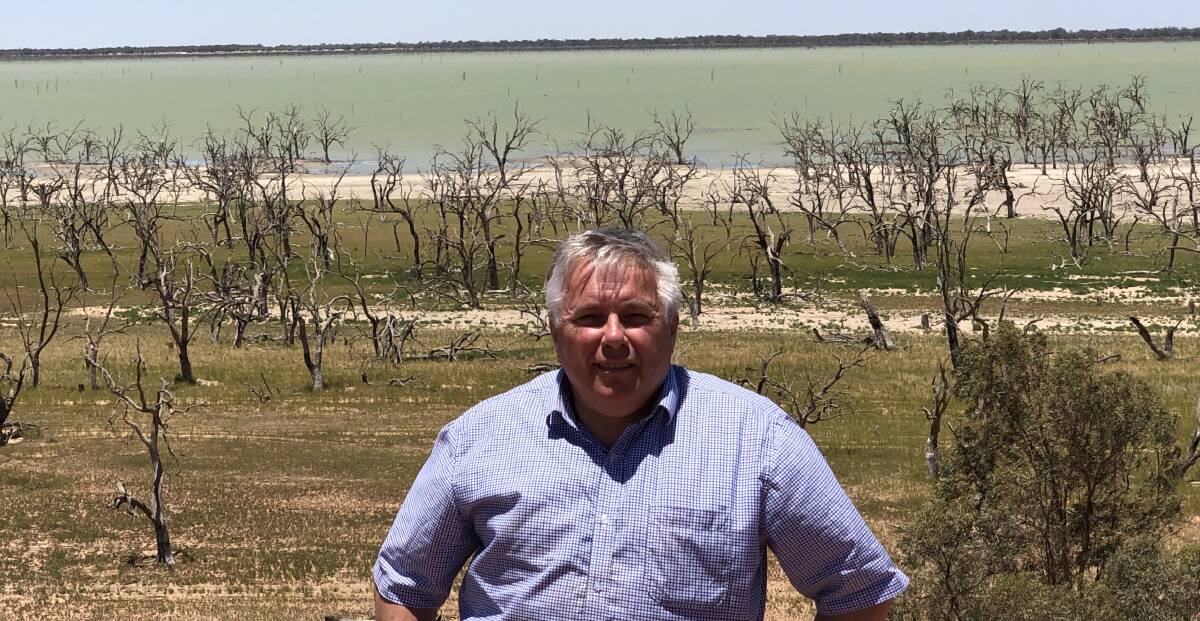
Minor party Senator Rex Patrick couldn’t have timed the introduction of his Bill to ban cotton exports better.
Hot on the heels of the South Australian Royal Commission’s scathing report on the Murray Darling Basin Plan last week, and one week before parliament resumes, The South Australian Centre Alliance politician is setting himself up with a headline-grabbing bargaining chip.
He says he wouldn’t have brought Bill to ban cotton exports to parliament if he was satisfied with the government’s response to the Royal Commission’s findings.
RELATED READING
“It wouldn’t be necessary to do this if David Littleproud accepted the report and said he would look at adopting its findings. The same goes for (NSW Regional Water Minister) Niall Blair,” Senator Patrick said.
A ban on cotton exports would cripple the industry and damage regional economies. About 90 per cent of the crop is sent offshore and the industry employs a significant service industry and runs gins in many towns across the Murray Darling Basin.
Senator Patrick said he drafted his Bill drafted the Royal Commission released its but had waited to see if the government responded with substantive measures to its findings.
The Royal Commission called for sweeping changes to recover more water for the environment and to increase irrigation buybacks as well as targeted measures like increased regulation of floodplain harvesting.
Agriculture Minister David Littleproud has not committed to implement the findings.
Senator Patrick is hoping his Bill can be a catalyst for policy change.
“I am not an extremist, I would’ve liked to see us not have to go anywhere near what my Bill says, but given where we are at, sometimes it takes the crossbench to agitate.
“Labor and Liberal tend to be conservative and it can be helpful to put up a proposal that is bold.
“We might end up with a situation where we say ‘let’s restrict cotton exports, but give the Minister the ability to issue a licence. It might be that the grower is licenced to export if floodplain harvesting wasn’t used for production.”
Senator Patrick said exporting cotton is like sending water from Murray Darling Basin to China, and the scale of the industry justified the targeted focus of his export ban.
“It’s the magnitude of the industry that justifies singling it out,” he said.
“It’s a big user of water and almost all of it gets exported, and that makes it a good proposition to ban exports. I am going for what will have the most impact.”
However, Senator Patrick is yet to detail why it is more beneficial for the environment to ban export of an annual such as cotton that is planted only when water is available, rather than permanent crops like citrus and nut trees that need to be watered regardless of water availability.
The fact that cotton is not grown in his home state of South Australia, where permanent plantings like citrus and wine grapes proliferate, will be grist to the mill for irrigation communities who see their local industries as a whipping boy for all Murray Darling irrigators.
Senator Patrick said he welcomed farmers to meet with him to discuss the Bill, and emphasised the legislative process where a Bill is referred to a Committee for review and the public can make submissions.
Mr Littleproud said making one crop type economically unsustainable would not change the condition of the river system.
“If farmer Joe has 100 megalitres he normally uses to grow cotton and you make cotton unviable, he just uses that water to grow a different crop,” Mr Littleproud said.
“Further, farmers only get to use their water in years of good rainfall. The Gwydir, Namoi and Macquarie districts near Menindee are all on zero general allocation for irrigation this year.”
Mr Littleproud said Senator Patrick had no plan to replace rural job losses.
“There are 1009 farmers in Australia currently growing cotton, and cotton export is a $2.1 billion industry employing 10,000 regional Australians in a good year,” he said.
“Some 90pc of our cotton is grown for export, so this plan would end the industry.
“Cotton is the highest value crop for farmers to grow in most of these areas. Effectively stopping farmers growing the most valuable crop just reduces farm viability and means less jobs.”
National Irrigators Council chief executive Steve Whan, who represents irrigators in South Australia and cotton-growing jurisdictions, said targeted bans against farmers was a risk to the South Australian economy.
“It is a ludicrous suggestion to ban export crops. If the same was applied to South Australia, their economy would crash into depression,” Mr Whan said.
“Just last week the South Australian Minister released figures showing primary industries are the state’s largest export sector, accounting for over half of the state’s merchandise exports, and a major employer.
“South Australia’s irrigators generate nearly $2 billion a year for their State. How would they and Senator Patrick feel if politicians in other states called on them to be closed down?”
Cotton Australia chief executive Adam Kay labelled Senator Patrick’s Bill a “a dangerous political stunt”.
“Once again we are seeing some politicians, mainly those from South Australia where no cotton is grown, kick our hardworking growers in an attempt to score easy political points,” Mr Kay said.


